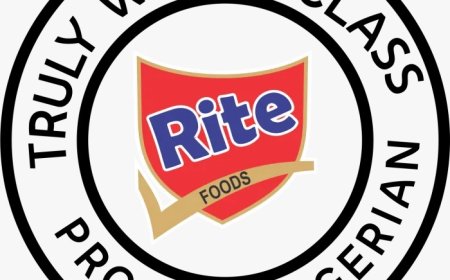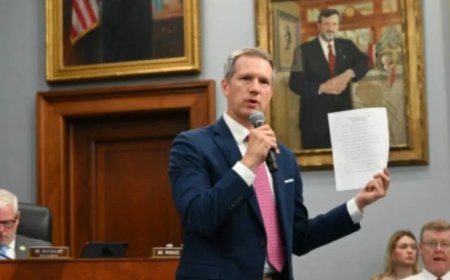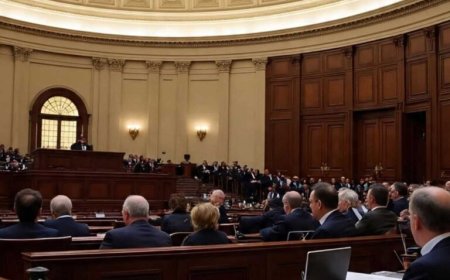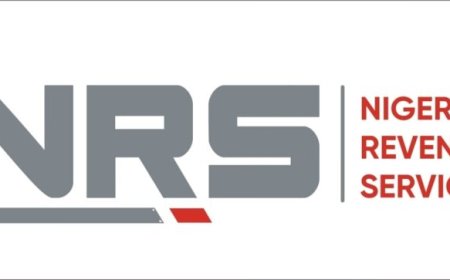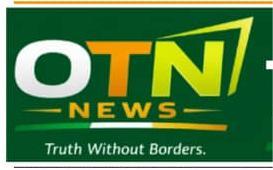#EndHungerNigeria:What You Should Know About Food Commodities Importation Tariffs Waivers Implementation in Nigeria
After What Many Nigerians Have Described As A Technical Delay in the Implementation of the Executive Order By President Tinubu in Respect of Tariffs Waivers on Importation of Target Food Commodities Into Nigeria, The Nigerian Customs Service Has Officially Released The Implementation Guidelines on The Zero-Duty, VAT Exemption With Many Nigerians Expressing Skepticism About The Capacity of the Process Executors to Guarantee Feasible Reduction in The Inflationary Prices of Food Items and The Attendant Hunger It Breeds in The Land.

#EndHungerNigeria:
What You Should Know About Food Commodities Importation Tariffs W
By:Israel Adeleke, Olufemi Orunsola
Many Nigerians have received the news about the Commencement of the implementation of Tariffs Waivers on importation of selected food commodities in Nigeria as ordered by President Bola Tinubu and being implemented by the Nigeria Customs Service with mixed feelings of scepticism and confusion.
OPEN TELEVISION NAIJA (OTN) News recalls that President Bola Ahmed Tinubu had announced an executive on the introduction of the Tariffs waivers on importation of food commodities into the country earlier in July but the impact of the executive order on food inflation in the country was not felt as the order was far from implementation.
During the 10 days of rage, marking the nationwide #endhunger cum #endbadgovernance protests which shook the existential foundations of the country as hungry Nigerians took to the streets to express their anger against the pervasive hunger in the land, President Bola Tinubu had addressed the country in a national broadcast dated Sunday, 4th August,2024.
In paragraph no. 29 of that address, President Tinubu reinforced his executive order on food commodities importation waiver as one of the major strategic moves by his government to solve the problem of hunger that formed one of the basis for the nationwide protests.
For the records, President Tinubu during his national broadcast had said"
"29. We are providing incentives to farmers to increase food production at affordable prices. I have directed that tariffs and other import duties should be removed on rice, wheat, maize, sorghum, drugs, and other pharmaceutical and medical supplies for the next 6 months, in the first instance, to help drive down the prices."
Unfortunately, the protesting Nigerian masses, mostly youths were not satisfied with the rhetorics of the President's speech, hence, the #endhunger protests continued, in many parts of country, especially in the northern region with varying degree of human density and intensity till the nationwide protests, scheduled to end on the 10th day of August with a 37-Million-Man March ended in a flopped manner amidst reported cases of heavily armed security personnel handling the protesters in ways tough enough to dissuade further actions by the protesters.
The next couple of days following the end of the 10-day nationwide #endhunger protests saw reports from Executive members of the Importers Association of Nigeria,granting press interviews to complain bitterly about the non-implementation of the President's executive order on food commodities importation tariffs waivers by men of the Nigerian Customs Service.
The Importers Association of Nigeria (IMAN) had reported that their members were still being made to pay duties and tariffs on importation of food commodities into the country as at August 14th, 2024 by men of the Nigeria Customs in defiance to the executive order given by President Tinubu.
However, the Comptroller General of the Nigerian Customs Service, Mr.Bashir Adewale Adeniyi, after a meeting with critical security and ministerial stakeholders from the Federal Ministry of Finance, told press men in Abuja that the delay in the implementation of the executive order on zero duty on importation of food commodities was due to the need to fine tune the operational implementation logistics with the Federal Ministry of Finance and implementation stakeholders.
Thereafter, the Customs Boss , Adeniyi released a detailed operational guidelines for implementation of the Zero-Duty, VAT exemption on essential food imports, which takes retrospective effect from July 15 to the end of the year 2024.
Again, the Customs Comptroller General, reaffirmed that the implementation of the zero duty to directives was to make basic food commodities more affordable to Nigerians.
Officially, the Nigerian Customs Service made the announcement on the timeline of the implementation of the duty waiver via a statement released by Abdullahi Maiwada, Chief Superintendent of Customs and National Public Relations Officer for the Comptroller General of Customs.
The statement outlines the guidelines for the duty waiver, covering items such as husked brown rice, grain sorghum, millet, maize, wheat, and beans.
Although the policy officially took effect on July 15, 2024, the Customs Service has just announced it, providing clarity on the details and framework for its implementation, which will continue through December 31, 2024.
“Drawing from the Presidential directives aimed at alleviating the hardship faced by Nigerians due to the high prices of essential food items, the Nigerian Customs Service (NCS) is pleased to announce that His Excellency, the President of the Federal Republic of Nigeria Bola Ahmed Tinubu GCFR through the Honourable Minister of Finance and the Coordinating Minister of the Economy, Olawale Edun has approved the regulation for the implementation of a Zero per cent duty rate and Value Added Text (VAT) exemption on selected basic food items. This policy is effective from 15th July 2024 and will remain in force until 31 December 2024,” the statement read in part.
Furthermore, the statement noted that the duty waiver on these selected essential food imports will help reduce the high cost of food in Nigeria by making essential commodities more affordable for Nigerians.
However, it also emphasized that while this temporary measure is designed to address immediate difficulties, it does not compromise the long-term strategies established to protect local farmers and manufacturers.
Eligibility requirements for zero import duty policy
The statement also provided detailed eligibility criteria for companies wishing to participate in the zero import duty policy on essential food items.
To qualify, companies must be incorporated in Nigeria and have been operational for at least five years, consistently filing annual returns, and financial statements, and paying all taxes and statutory payroll obligations during this period.
For those importing husked brown rice, grain sorghum, or millet, additional requirements include owning a milling plant with a capacity of at least 100 tons per day, which must have been operational for a minimum of four years, along with sufficient farmland for cultivation.
In the same vein, companies importing maize, wheat, or beans must be agricultural enterprises with adequate farmlands or feed mills/agro-processing facilities that maintain an out-grower network for cultivation.
Compliance and monitoring framework
The Federal Ministry of Finance will periodically supply the Nigeria Customs Service (NCS) with a list of approved importers and their quotas to facilitate the smooth importation of these basic food items within the framework of this policy.
Additionally, the policy mandates that at least 75% of the imported items be sold through recognized commodity exchanges, with all transactions and storage thoroughly documented.
Companies are required to maintain comprehensive records of all related activities, which the government may request for compliance verification.
Failure to meet the obligations under the import authorization will result in the company losing all waivers and being required to pay the applicable VAT, levies, and import duties.
In all, OPEN TELEVISION NAIJA (OTN) News, keeping faith with our social responsibility of communicating development to Nigerians while upholding the bottom accountability and responsibility of government and its agencies to the people, remain committed to monitoring and reporting how the Nigerian Customs Service follow through the implementation process of the President's directive in such a manner that will bring about the desired results which are: feasible, drastic reduction in the prices of target imported food commodities, thus assuaging the widespread hunger in the land before the end of the year.
What's Your Reaction?












